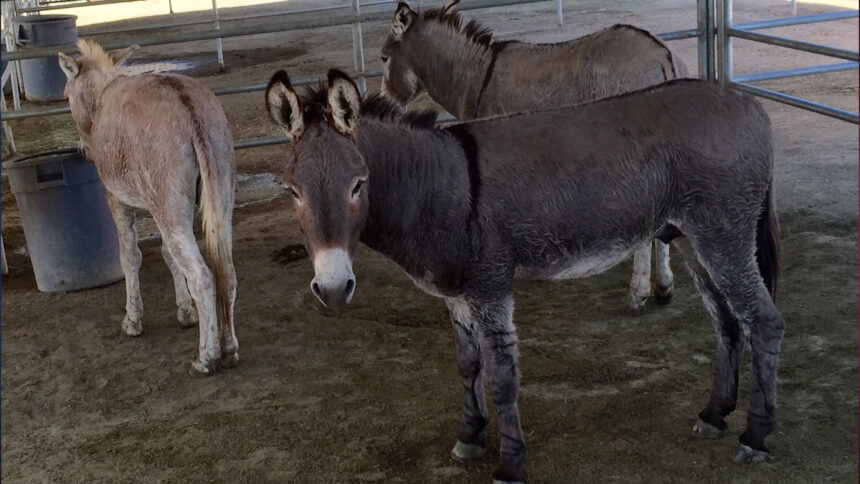Influenza outbreak has killed at least 38 burros across Riverside County

The Riverside County Department of Animal Services is receiving state assistance in dealing with an equine influenza outbreak that is impacting the county's burro population.
According to officials, equine influenza is a highly contagious virus that spreads rapidly through groups of horses by cough or through fomite transmission. It only affects equids (horses, mules, and donkeys), it does not affect other species of animals.
So far, the virus has killed at least 38 burros but that number is expected to continue to rise, according to information reported to the Animal Service officials.
The first known deaths were reported about two weeks ago.
Most have occurred in the Reche Canyon area. but six occurred in the Moreno Valley Animal Services’ coverage area in the interface of the foothills along Pigeon Pass Road, Heacock Street (which be Reche Vista Drive), and Redlands Boulevard.
San Bernardino County officials said they have not had any reported cases.
Officials advise the public to avoid contact with the burros, especially anyone that owns horses.
Humans can't contract the disease, but people can still act as fomites and transmit the virus between horses, said Emily Nietrzeba, a Sacramento-based equine specialist veterinarian with the California Department of Food and Agriculture (CDFA).
CDFA veterinarians is assisting Riverside County in dealing with this outbreak.
County and state officials urge horse owners to consult their veterinarians and get booster vaccines for previously vaccinated animals. Officials also advise horse owners to move their animals away from fence lines in areas where burros frequent.
"The majority of the clinical signs are respiratory and may also include
fever, edema and enlarged lymph nodes," reads an alert by the Department of Animal Services.
Officials say the clinical signs are more common, and more severe, in younger horses (ages 1 to 5). The disease is milder for older horses, but it can be more severe in donkeys and mules.
Horse owners should avoid traveling with their animals if they believe their pets might have been exposed, says Dr. Alisha Olmstead, a state veterinarian with in the CDFA’s Ontario office.
Owners should also avoid having visitors with horses come to their properties because indirect transmission can occur and can be an important means of spread.
According to Olmstead, equine influenza is one of the most common infectious diseases of the respiratory tract of horses. There are several vaccines currently marketed.
Riverside County, Moreno Valley and San Bernardino County officers will assist with transporting sick burros, when possible, to the nonprofit organization DonkeyLand for isolation and care. DonkeyLand’s staffers – and its veterinarian, Dr. Paul Wan – will vaccinate and monitor the burros before releasing them back to the wild.
Officials aren't sure exactly how many burros there are in the hills between Riverside and San Bernardino counties, but some estimates put the number at approximately 500 burros.